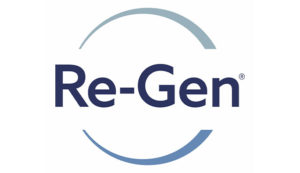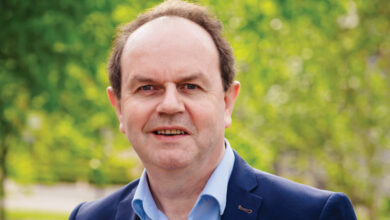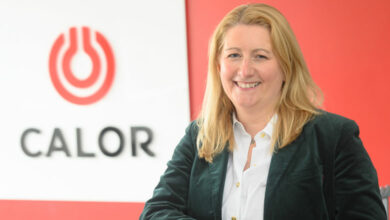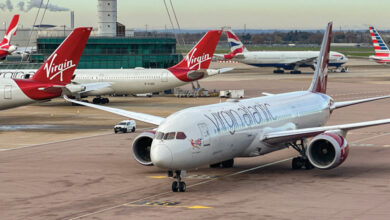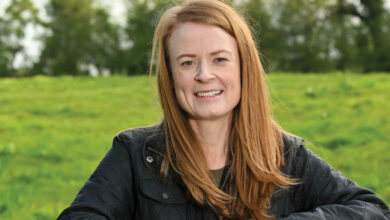Co-mingling boosts councils’ recycling rates
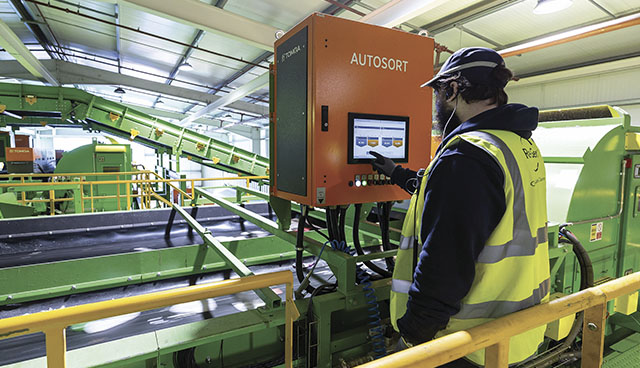
As we move towards a ‘zero waste economy’ and a society where waste resources must be fully valued both financially and environmentally, Joseph Doherty, Managing Director of Re-Gen Waste, says that his leading-edge infrared sorting technology is extracting high-purity, high-value end fractions from co-mingled household waste and boosting his customers’ recycling rates.
Doherty explains that: “Simplicity and convenience are the most significant factors in determining participation by householders and this means offering them a service where they can put all their recycling in one bin. Local authorities need to encourage the maximum number of people to recycle, to reduce their landfill costs and co-mingling with glass appears to be the most successful way to grow their recycling rates.”
These opinions are reflected in a recent national poll, carried out by Lucid Talk across all 11 council areas in March 2022, which revealed that 24 per cent of Northern Ireland householders said they are not happy with recycling service.
Yet, in council areas where household recyclables (plastic, paper, card, tins, and cardboard, etc) can be ‘co-mingled’ with glass in the same bin, 82 per cent of householders reported that they were happy with how their council had asked them to recycle, with Derry and Strabane Council’s householders being most content, at 88 per cent.
According to Doherty, the survey findings, when examined alongside DAERA’s latest figures for Councils’ 2020/21 Household Dry Recycling and Landfill Rates, it would seem to suggest that the convenience and containment of a single wheeled bin for dry household recycling is considered appealing by householders that use this service.
The councils with householders happiest with their recycling service generally had the highest household dry recycling rate per capita, and the lowest landfill rate per capita. These councils were those that offered a co-mingling service to their householders.
Doherty says: “Co-mingled or mixed recycling is probably one of the most versatile recycling services available to householders. It is practical, efficient, and convenient and means they can put numerous commodities into the same bin without any hassle.
“Councils we work with confirm that for them, it is the easiest and best value recycling system available for householders and increases their household recycling rates.”
The Lucid Talk survey found that Mid and East Antrim Council’s householders were least happy (61 per cent) with their council’s recycling collection method, followed closely by Belfast City Council (65 per cent).
Of the respondents who said they weren’t happy with how their council has asked them to recycle, 23 per cent rated their bin lids and boxes blowing away in windy weather as the top negative factor.
Reassuringly, 81 per cent of the householders surveyed across Northern Ireland said that they try to recycle everything they can, up from 74 per cent from the same poll held in 2019. However, 17 per cent of the respondents admitted to recycling only when it was convenient for them, but not always.
When asked what would encourage them to recycle more, of the councils that don’t offer a fully co-mingled recycling service with glass, over half said they would recycle more if there was one bin that took all recycling, including glass.
Doherty continues: “These survey results are very similar to the results of the survey carried out by Lucid Talk in 2019. Simplicity and convenience continue to be the most significant factors in determining the success rate of householder recycling.
“It is heartening to see more householders are saying recycling is very or somewhat important to them (95 per cent) and that eight out of 10 people say that they try to recycle everything.”
The survey found that 8 per cent of people across Northern Ireland who cannot recycle their glass along with the rest of their recycling waste, will put their glass in the municipal waste (black or grey) bin, compared to 1.8 per cent who live in council areas that offer a co-mingled glass recycling service.
In Belfast, 22 per cent of respondents said they put their glass in their municipal waste bin rather than recycle it, an increase of 2 per cent since 2019. This council area does not offer a co-mingled glass recycling service to half the district.
When respondents who live in council areas where glass is co-mingled were asked if they would recycle less if they had to place their glass waste into a separate caddy, one third said they would.
Doherty says: “It is patently obvious that if we make recycling easy for householders, they will recycle more. And if we provide householders with a recycling service that allows them to put glass into their recycling bins, the volume of glass in their black bins and therefore landfill, decreases dramatically.
“Innovations in recycling technology are transforming the way we work, to improve the sorting of recyclables, at a rate unrivalled in history and Re-Gen Waste has made a conscious effort to keep pace.
“And the irony is, that contamination is still present in a kerbside sort system; the difference is that it is left in the box by kerbside sorters and the householder dumps it in their residual waste bin. This material can end up in landfill at a cost of £120 per tonne, resulting in an increased cost to councils. They also need to factor in the landfill tax. Co-mingled can create a higher value. It will be recycled one day when economics make it viable.
“Our recent £5 million development including an investment in 10 of the latest generation Autosort units, has already boosted dry recycling sorting performance.
The new units use sophisticated infrared sorting technology to increase the quantity of fibre and paper materials and have increased the output of plastic fractions, enabling Re-Gen Waste to move from their current mixed plastics output to more refined, higher purity single stream plastics fractions.
The equipment combines near infrared (NIR) and visual spectrometers (VIS) to quickly and accurately recognise and separate different materials according to their material type and colour, extracting high-purity, high-value end fractions.
The technology also provides Re-Gen with invaluable in-depth digital metrics and data about the status, performance and operation of their sorting equipment and the material waste composition it detects. Doherty says they can “quickly understand what materials are coming in and how they are changing due to shifting societal and household dynamics and the enactment of government policies”.
“We can then feedback to local authorities to help them understand where contamination is coming from and, in turn, provide more targeted recycling information to householders,” he adds.
“As one of Europe’s most advanced materials recycling facilities we have the investment capital and the operational expertise to provide next generation sorting technology that is diminishing the already low contamination levels and can transform how councils handle their dry household recycling.”
| Research commissioned by Re-Gen Waste Ltd. Polling was carried out by Belfast based polling and market research company LucidTalk. The project was carried out online for a period of five days from 14th March to 18th March 2022. The project targeted the established Northern Ireland (NI) LucidTalk online Opinion Panel (13,816 members) which is balanced by gender, age-group, area of residence, and community background, in order to be demographically representative of Northern Ireland. 1,945 full responses were received. A data auditing process was then carried out to ensure all completed poll-surveys were genuine ‘one-person, one-vote’ responses, and this resulted in 1,770 responses being considered and verified as the base dataset (weighted and unweighted). Then in order to produce a robust and accurate balanced NI representative sample, this base dataset of 1,770 was weighted by gender, community background and additional demographic measurements to reflect the demographic composition of Northern Ireland resulting in the weighted data tables and weighted results set i.e., the final results – 1,770 responses (weighted) and these are the results presented in this report. All data results produced are accurate to a margin of error of +/-2.3 per cent, at 95 per cent confidence. NB all surveys and polls may be subject to sources of error, including, but not limited to sampling error, coverage error, and measurement error. All reported margins of sampling error include the computed design effects for weighting. |

